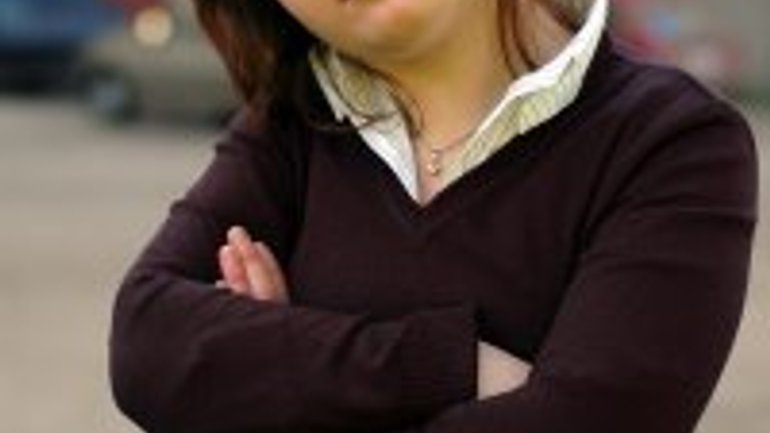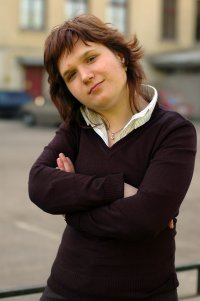Religious Freedom in Ukraine in 2010

 Ukraine is one of the world leaders to respect religious freedom, said Yurii Reshetnikov, the Chairman (now former Chairman) of the State Committee on Nationalities and Religions at the beginning of this year. He proved his words with statistics.
Ukraine is one of the world leaders to respect religious freedom, said Yurii Reshetnikov, the Chairman (now former Chairman) of the State Committee on Nationalities and Religions at the beginning of this year. He proved his words with statistics.
In January 2010 in Ukraine there were 35,184 religious organizations, including: Ukrainian Orthodox Church-Moscow Patriarchate – 12,082, Ukrainian Orthodox Church-Kyivan Patriarchate – 4,415, Ukrainian Autocephalous Orthodox Church – 1,234 parishes, Ukrainian Greek Catholic Church – 3,765 parishes, and Roman Catholic Church in Ukraine – 1,079 parishes. Protestant churches comprise nearly 8,500 religious organizations, Baptists – 2,725, Pentecostals – 1,692, Seventh-day Adventists – 1,069. In comparison with January 2009 we observe a slight increase.
Will the newly appointed chairman of the State Committee on Nationalities and Religions be able to talk with the same confidence about religious freedom in Ukraine in 2011? What will the statistics show? Is the inner feeling of increasing restriction present in society and discussed among journalists more accurate than statistics and will it touch the life of religious organizations?
To discuss these matters without biases we grouped the facts which help us track changes and trends on how religious freedom is protected and adhered.
Political Issues
The New Year started with a sense of threat to religious freedom in Ukraine – the inauguration of newly elected President Viktor Yanukovych, when the Russian Orthodox Church and its head became obvious favorites of the new regime. Patriarch Kirill was one of the first – even before the official results, February 9 – to congratulate Yanukovych as President of Ukraine.
It was clear even before the election that future President Viktor Yanukovych would not be as friendly and open to all religions as President Yushchenko was. He always kept the image of an "Orthodox candidate,” who belongs to the canonical church. Distinctly communicated support of the Ukrainian Orthodox Church-Moscow Patriarchate was clearly demonstrated during the inauguration of the newly elected president through the participation of Patriarch Kirill, who as head of the whole church (not only its national "unit"), blessed Viktor Yanukovych for his presidency. He led the prayer in the Kyiv Cave Monastery. The heads of other churches and religious organizations were not invited to this prayer. This was criticized not only by religious organizations, but also by politicians who saw this event as a “threat to national security."
Viktor Yanukovych refused the symbolic "legitimization" to govern the country from all religious organizations – a joint prayer for success in presidency of heads of various churches in the Cathedral of Saint Sophia – and only accepted blessing from the church he belongs to. Other denominations were invited to attend the commemorative session of the Parliament, not as agents of legitimization, but simply as witnesses.
By violating the traditional tolerant protocol of religious aspects of the inauguration, Viktor Yanukovych fell upon excessive identification with the Russian Orthodox Church, not the Ukrainian Orthodox Church-Moscow Patriarchate. This was shown in the slogan "Our Patriarch is Kirill, our President is Yanukovych!" While the prayer and blessing were not official, the symbolism was quickly understood and has caused worries about threats to religious freedom in Ukraine. Although further steps Yanukovych were not in the continuation of this vector, the symbolism of the inauguration was crucial for understanding the changes taking place in the relationship of the administration and religious communities.
Instead of the forecasted conflicts this behavior provoked the offense reflected in greetings, appeals from leaders of churches and religious organizations to the newly elected president. Interesting is the fact that protecting their rights the church and religious organizations are referring to the Constitution of Ukraine, as for example the Ukrainian Greek Catholic Church, "In our state there are many denominations, unlike some countries where one religious organization enjoys a privileged status in contrast to all other denominations. According to the legislation of Ukraine, all of our churches and communities properly registered with state bodies have equal rights.”
Changes in Legislation – Attempts to Strengthen Power
Symbolisms of political actions are important, but even more important are the long-term solutions, such as changes to legislation. The most important law for religious organizations is the Law On Freedom of Conscience and Religious Organizations, and recent turbulence around changes to that law make religious organizations worry.
Draft of the Amendments to the Law On Freedom of Conscience and Religious Organizations (№ 6493) of June 7, 2010, which never became a law but was withdrawn from consideration by the Parliament, could increase the dependence of religious organizations on state authorities. It could also restrict the activities of religious organizations that might be dangerous for the country. The criteria, however, are arbitrary and blurred so that the law could be applied to ban activities in some monasteries and some religious practices. This law is not adopted, yet the risk remains until rights and restrictions on state interference in the affairs of religious organizations are clearly defined.
Also dangerous to religious freedom are the drafts On the Prohibition of Totalitarian Sects and On Organizing and Holding Meetings that significantly limit the religious organizations’ activities.
Economics: Politics of Carrot and Stick
The first quarter of 2010 was a struggle for tariffs for utilities. The reduction of prices is very important for churches to maintain sacred buildings. It is worth noting that the struggle for rates has been around for much longer, but just before the elections, religious organizations received a discount. In March a decision signed by Yulia Tymoshenko was enacted. According to this decision, in 2010 prices for natural gas will not be increased for religious organizations.
This small financial victory was completely abolished in July – the Ukrainian government almost doubled the rent for churches and religious and other non-profit organizations.
Churches of Kyiv instead of a reduction received rates 5 times higher for heating, as local authorities are in control of setting the tariffs. Local authorities switched off gas to the only Greek Catholic church in Odesa and were threatening to switch off the water until all bills were paid.
Not ideological, but financial pressure is very dangerous when we talk about the religious freedoms. For example the state has not returned 4 million USD of VAT to the UGCC for building the church in Kyiv, which slowed the pace of construction.
Domestic Conflicts, Gains and Losses
If we move away from the macro level and see how religious communities are living on the ground, we see no dramatic changes in interdenominational and church-state relations. The usual disputes over property and other issues due to changes in the state receive different hues. The most common remain disputes over the ownership between church and state or different denominations.
In winter there was a conflict between the Ternopil Council and the Pochayiv Monastery over financial and property issues, including the legitimacy of the rent according to which the Ukrainian Orthodox Church-Moscow Patriarchate owns the Pochayiv Monastery until 2052.
Land is an important factor influencing the activities of religious organizations, and the corrupt licensing system acts as a speed bump on the way of the churches’ development. In the past 10 years the Ukrainian Greek Catholic Church received only one plot in Kyiv, although the number of the faithful is growing and the churches cannot satisfy their needs. The Greek Catholic community in Yalta can not obtain land for a church for over 18 years, although all the necessary documents are ready. Fifteen hectares of the Holy Mountains Reserve will used to build hotels and recreation centers. There are ongoing debates on construction projects on the lands which belong to churches in Kyiv.
The transfer of sacred buildings to the communities (that were state owned during Soviet times) are continuing with variable success. Roman Catholics received churches in Hirov (Lviv region), Chernivtsi, the Center for Military Chaplains of the UGCC received the old Jesuit Cathedral in Lviv, the Mykolayiv governor promised to return the museum building to Roman Catholics. Still controversial is the question of the Mary Magdalene Church in Lviv, which community for many years seeks to get their property back and this year the building was granted to the House of Organ and Chamber Music for 20 years.
The different denominations also have property claims: for example, four priests of the Ukrainian Orthodox Church-Kyivan Patriarchate transferred to the Ukrainian Orthodox Church-Moscow Patriarchate along with their churches and believers; there was a conflict over the church building in Kaniv between the Ukrainian Orthodox Church-Kyiv Patriarchate and the Ukrainian Autocephalous Orthodox Church.
What conclusion can be made based on these facts? The obvious conclusion – the symbolic actions of the politicians get media and public attention but religious organizations primarily undergo financial pressure, which destabilizes their ministry. The risk of restricting religious freedoms can be minimized not by loud declarations and actions, but by new legislation, which will protect religious organizations from the turbulent political situation and will stop registration of religious communities without legal reasons.
One of the most difficult issues in understanding the respect for religious freedom in Ukraine, which makes it difficult to monitor and analyze, is the attitude of the churches that make up the majority in the region, to the churches that make up a minority, and how differently local authorities treat them, overcoming the stereotypes that still exist in different denominations against each other. But this is a problem of personal memory and religious identities, which requires more time and more dramatic changes in the consciousness.









